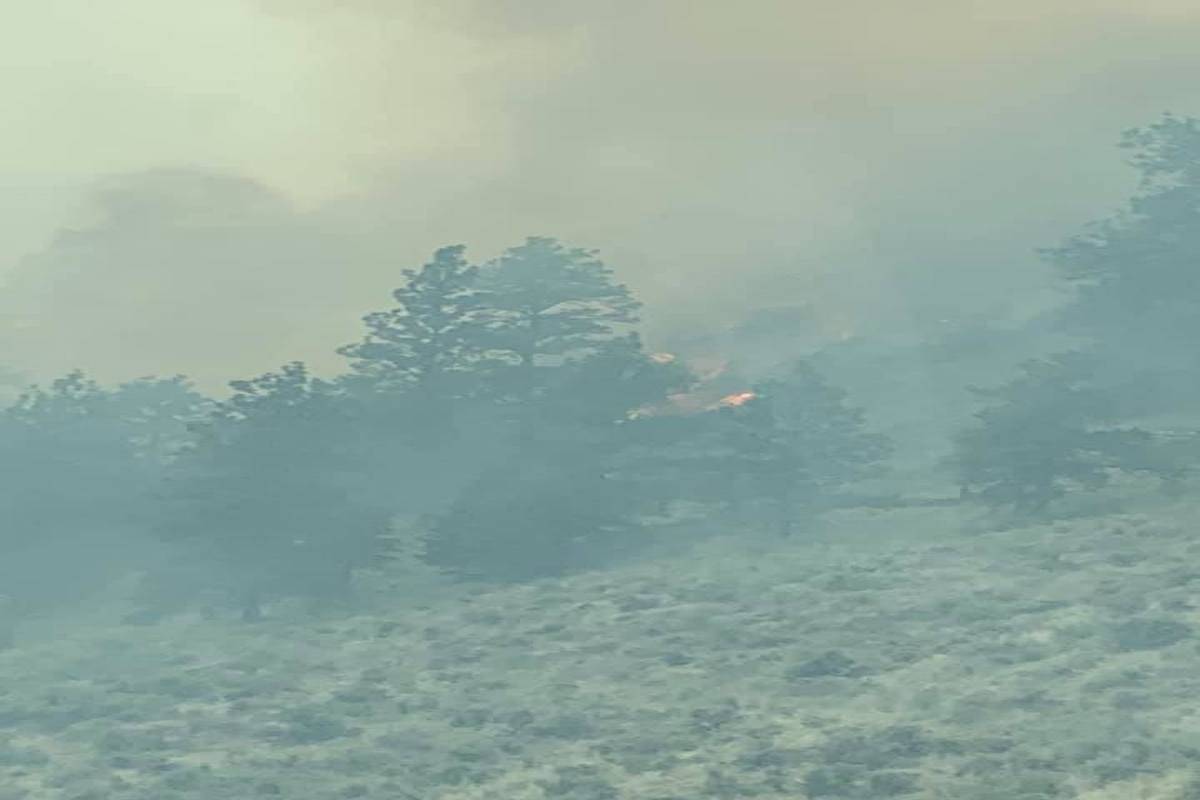Wildfire season is off to a roaring start as the state has dealt with more than 560 fires already this year, with many burning west of the Cascades.
Fire seasons in Washington state and the West Coast have been coming earlier in the year, now stretching from mid-spring well into autumn, likely due to inadequate forest management, large swaths of dead and diseased trees and warmer summers due to climate change. Janet Pearce, spokesperson from the state’s Department of Natural Resources (DNR), said the agency is watching for more fires west of the Cascades as much of the state is in some form of drought.
“We are seeing more fires down in southwest Washington. We’re seeing more fires in northwest Washington and our Olympics region around the Olympic National Forest. We’ve had a few little fires popping up, so we are starting to get into the heart of it,” she said.
July usually marks when fire season is in full swing as fuels — ranging from grass and sticks to trees — dry out and more easily ignite. However, the state is already staging firefighting resources and has quickly knocked down most of the fires that have sprung up this year. The DNR has a goal of containing every fire to fewer than 10 acres.
“I’m afraid come July we could be awfully busy,” Pearce said.
July also ushers in more lightning storms, which can start fires. However, fires only account for 10 to 20 percent of all wildfires, with the vast majority being sparked by human activity. Most of these ignitions are accidental and are caused by everything from chains dragging off a vehicle and creating sparks to people doing yard work.
“We’re on high alert right now for this summer because our summers seem to be warmer and drier, and that was our prediction for this season coming up,” Pearce said.
The National Interagency Fire Center (NIFC) in April released its fire predictions stretching through July. It showed that Western Washington was at an elevated risk for wildfires while the fire-prone areas of Eastern Washington sat at a normal risk, which is still much higher than the normally wetter areas west of the Cascades.
In March, there were about 50 fires that popped up primarily in Cowlitz and Lewis counties in southwest Washington. Some 90 residents in Cowlitz County were evacuated.
Much of Western Washington is experiencing a moderate drought, including King, Snohomish and most of Pierce counties. Most of the Peninsula and coastal areas of the state are experiencing a severe drought.
One of the most immediate signs of fires for those living in King County is the choking smoke, which has landed a residency hovering over Western Washington in recent summers. Wildfire smoke can cause a number of health problems, and the state’s Department of Health (DOH) is settling in and planning for how to deal with it on an ongoing basis. Plans include the creation of the Wildfire Smoke Advisory Group, which convened last December, pulling members from state, local and tribal agencies.
Julie Fox is an air quality specialist with the DOH and said the group will be figuring out ways to better communicate, when to cancel school or outdoor events, and providing guidance to local governments about how to read air quality measurements. The DOH is also focused on educating people on how to better navigate the health hazards wildfire smoke will continue to pose.
“Which is not a small task, — there are a lot of things to do and it does take planning and adjusting your life, so that’s a big ask,” Fox said.
That includes checking air quality — either from the Washington Smoke Information Blog or local regional clean air agency websites — and monitoring for symptoms of smoke exposure, which include early symptoms like irritated eyes or headaches.
If the air quality is too bad, people should stay inside and try and keep the air quality at a more tolerable level. Mitigating efforts can include closing windows or using HEPA smoke filters. A full list of these recommendations is available on the DOH Smoke from Wildfires webpage.
“When it’s really bad smoke, it’s pretty much everyone (affected),” Fox said.
Talk to us
Please share your story tips by emailing editor@kentreporter.com.
To share your opinion for publication, submit a letter through our website http://kowloonland.com.hk/?big=submit-letter/. Include your name, address and daytime phone number. (We’ll only publish your name and hometown.) Please keep letters to 300 words or less.

